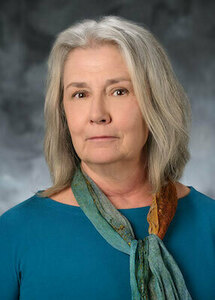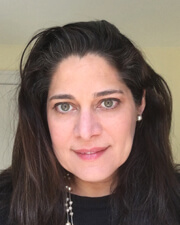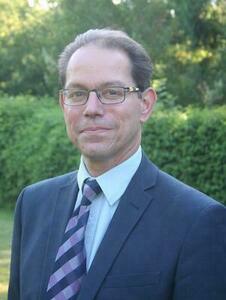2021 Conway Lectures on Dante Aligheri Produce Fruitful Interdisciplinary Discussion

On Thursday, September 23rd and Friday, September 24th, the Medieval Institute hosted three scholars—two in person, one on Zoom—to discuss Dante’s Divine Comedy and its impact on the field of Medieval Studies.
Each scholar took a slightly different angle: one legal, one architectural, and one philosophical. Following three individual talks and a reception, the three scholars converged at a roundtable to discuss each other’s work and the possibilities of contemporary Dante scholarship.
Carol Lansing, Professor of History at the University of California, Santa Barbara, started off the lecture series with a talk entitled “The Power to Choose? Piccarda Donati in the Paradiso and Girls in Bologna's Criminal Court.” The talk focused on Piccarda Donati, a cloistered nun who was forced to marry and then placed by Dante in the lowest heaven of Paradise due to a failure of will. Lansing has investigated Bologna’s criminal court records for similar cases, and elaborated on the differences between accusation and inquisition cases in medieval law, as well as her discoveries about sex work and consent in medieval Bologna.

Areli Marina, Associate Professor of Medieval Art and Architecture and Italian Architecture and Urbanism 1000-1600 in the Kress Department of Art History at the University of Kansas, gave the second talk on Thursday afternoon, entitled “Battering Ram and Fire: Civic Glory and Devastation in Dante's Age.” She discussed the persistent construction in Florence, Bologna, and Verona during the end of the 13th century, using manuscript illuminations to discuss inter-city warfare and the frequent practice of property destruction due to personal vendettas. She focused in particular on the images in the Nuova Cronica by Giovanni Villani, which includes an impressive twenty-two images of city destruction.
Simon Gilson, Agnelli-Serena Professor of Italian at the University of Oxford and Fellow of Magdalen College, gave the third talk on Friday afternoon, entitled “Dante’s Philosophers.” He focused on Dante’s descriptions of the philosophers in Limbo and in the Heaven of the Sun, and subsequent references to Aristotle, Plato and Averroes. His lecture highlighted the richness and complexity of Dante's contact with, and poetic reworking of, late medieval currents of philosophical speculation.

The lectures concluded with a roundtable in which the three speakers took turns answering questions about connections between the three talks. For example, when asked about the topic of judgment and justice, Lansing talked about justice through the courts, Marina about wealth morally justifying violent destruction in cities, and Gilson about justice for pagans in Limbo.
The three speakers also discussed their similar interest in Dante’s time and influences, rather than just the text itself. Gilson advocated that it was time to acknowledge Dante’s receptivity and “take him off the pedestal and put him back into his messy context” by focusing on his influences, like preaching manuals of the period.

Dante has been enormously influential for medieval studies, as each speaker discussed at the end of the roundtable. Marina emphasized that a focus on Dante makes Italy more prominent in discussions of medieval art history. Lansing remains amazed by his work's ability to resonate with a diverse group of students. Gilson echoed that point, and advocated for increased interdisciplinary work and collaborative engagement among academics.
This Lecture series certainly promoted this very engagement, as it brought scholars from across the country with different approaches to Dante, yielding a rich discussion of the state of Dante studies. Students left inspired by the wide variety of approaches to Dante’s work and grateful for the Medieval Institute’s interdisciplinary approach, which promotes this kind of discussion in the classroom, as well as in its events.
The Institute would like to thank these excellent speakers for their contributions, and Robert M. and Ricki Conway, who support this lecture series. Robert Conway is a 1966 graduate of Notre Dame and trustee of the University, and he and his wife are long-time friends and supporters of the Medieval Institute. The annual Conway Lectures bring senior scholars of international distinction to Notre Dame each fall to speak on topics across a variety of disciplines. The lectures are then published by the University of Notre Dame Press.